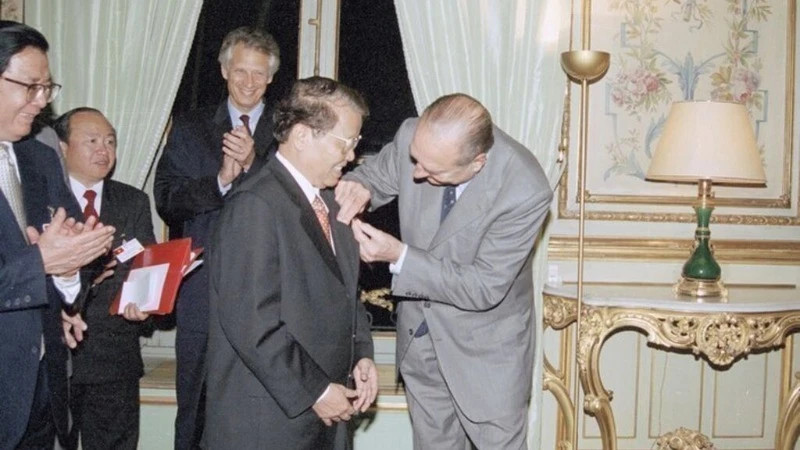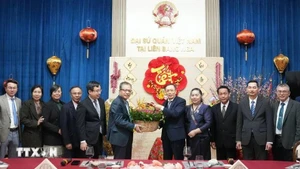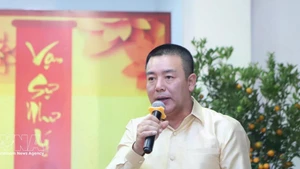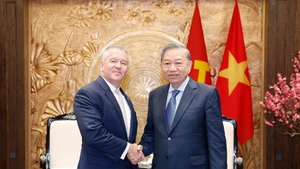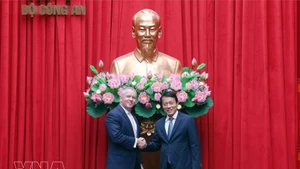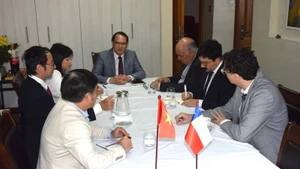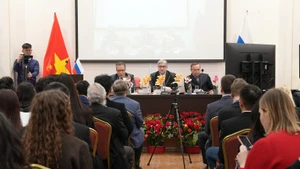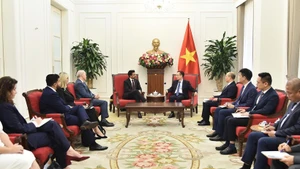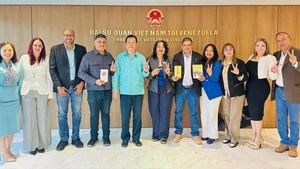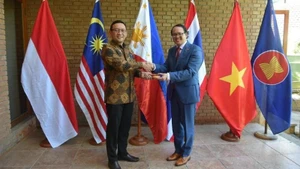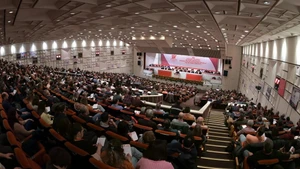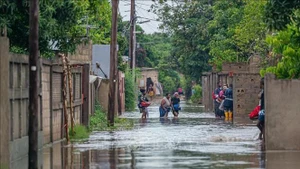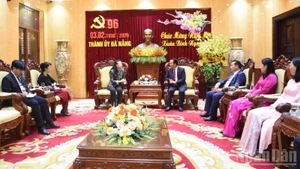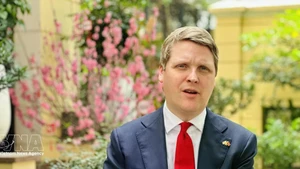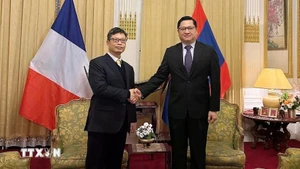In a conversation with Nhan Dan Newspaper, former Minister of Foreign Affairs Nguyen Dy Nien reflected on the significant contributions made by late President Tran Duc Luong to the country, particularly to the diplomatic service.
Reporter: As a person closely involved with the late President Tran Duc Luong in the field of diplomacy, what are your impressions of his contributions to Viet Nam’s foreign affairs?
Former Minister of Foreign Affairs Nguyen Dy Nien: I had the honour of working under President Tran Duc Luong’s leadership for ten consecutive years. I must say that he left a truly important legacy for the diplomatic sector of our country.
When Comrade Tran Duc Luong assumed the presidency, Viet Nam was entering a period of proactive international integration, pursuing the diversification and multilateralisation of its foreign relations. His contributions stood out in many respects.
Looking back, the steps taken during his tenure laid a solid foundation for Viet Nam’s current diplomacy. At that time, although we had opened and begun our Doi Moi process, our internal capacities were still quite limited. Yet, under his leadership and through active diplomatic engagement, Viet Nam succeeded in establishing sound relations with developed nations.
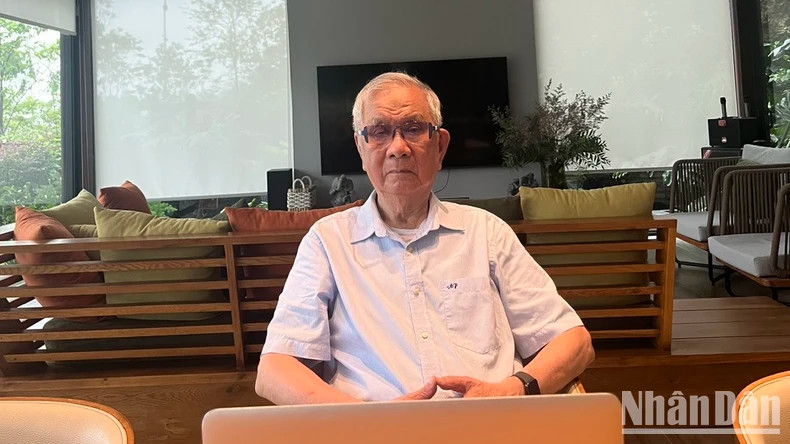 |
| Former Minister of Foreign Affairs Nguyen Dy Nien (Photo: THANH THE) |
Reporter: Could you share a key moment in Vietnamese diplomacy associated with the late President Tran Duc Luong?
Former Minister of Foreign Affairs Nguyen Dy Nien: One major milestone was the official visit of US President Bill Clinton to Viet Nam in 2000 — a historic move considering that the two nations had been former adversaries. This visit took place five years after the normalisation of diplomatic relations in 1995, and it marked the first time a sitting US president officially visited Viet Nam.
At the time, the wounds of war in Vietnam were still serious, visible across the country. We had to be careful about how to host such a visit appropriately.
President Tran Duc Luong made wise and courageous decisions — striking a balance between public sentiment and diplomatic progress. His approach helped the Vietnamese people accept the visit of a former enemy’s head of state, while also accelerating the normalisation of bilateral ties and showing the world Viet Nam’s goodwill and openness in foreign policy.
I vividly remember how meticulous our preparations were — from handshakes and smiles to speeches and dialogue. Internally, there were still strong reservations, especially from veteran revolutionaries who had fought in the war. In that sensitive climate, President Tran Duc Luong gave thoughtful and precise instructions.
For example, regarding the official banquet speech, the initial draft was somewhat rigid. He instructed me to revise it to a more conciliatory tone. Only three people were present for the final review: Party General Secretary Le Kha Phieu, State President Tran Duc Luong, and me, then serving as the foreign minister. In the end, the speech was softened and made more persuasive, putting the Vietnamese public at ease and making the US side feel welcome.
Another vivid memory was the president’s visit to France in 2002. The French reception was incredibly warm. President Tran Duc Luong was highly engaged, making a deep impression on the French hosts with his active diplomacy and the message that Viet Nam’s foreign policy was evolving in a positive direction. During the visit, President Jacques Chirac awarded him the prestigious Legion of Honour — an expression of respect not only for him personally but also for Viet Nam.
That visit significantly enhanced Viet Nam-France relations, taking them to new heights.
Immediately following was his visit to the United Kingdom, which also left a strong impression. Queen Elizabeth II welcomed him with great ceremony. When we expressed interest in arranging a meeting with Prime Minister Tony Blair, the UK side hesitated at first.
They initially scheduled only 20–25 minutes, assuming it would be a brief courtesy call. However, when they met, President Tran Duc Luong raised detailed and substantive issues across economic, cultural, trade, and social areas. Blair was surprised by how well-versed the president was in so many topics. As the meeting ended, the prime minister personally walked the president to the door.
Reporter: Could you please share your impressions of the late President Tran Duc Luong? If you were to describe the late president's diplomatic style, what words would you use?
Former Minister of Foreign Affairs Nguyen Dy Nien: Above all is proactive. President Tran Duc Luong was exceptionally proactive in diplomacy. I accompanied him to many international conferences, and he always took the initiative to engage with other delegations.
Even in airport lounges, upon spotting foreign leaders or representatives, he would approach them without hesitation, regardless of whether they had previously met. These gestures were highly appreciated by the international community. Most of the countries he reached out to at the time had not yet established formal diplomatic relations with Viet Nam — many of which were African nations — and they deeply valued those efforts.
In the field of diplomacy, President Tran Duc Luong made concrete contributions. These were foundational steps that have enabled Viet Nam to advance in the years since.
I would also like to highlight that President Tran Duc Luong served as chairman of the National Defence and Security Council. In meetings, he demonstrated keen insight and a realistic, in-depth understanding of the issues. Some of his assessments were met with hesitation from others, but when events later unfolded as he had foreseen, they revealed his profound vision.
Throughout over ten years working with him, I witnessed a leader who made well-considered and effective decisions. He was approachable and kind, yet cautious and principled — always placing national interests above all else.
Reporter: Having worked closely with him, did he ever share his concerns about the country?
Former Minister of Foreign Affairs Nguyen Dy Nien: During flights he would often confide in me. He used to say that it was only when going abroad that one could truly see Vietnam's development was still slow and poor. He always wished for the country to become more prosperous, for the people's lives to improve, for the economy to grow stronger. Only then, he believed, would our diplomatic voice carry more weight and our proposals at international forums be taken more seriously.
He was deeply convinced that the intelligence of the Vietnamese people was on par with any other nation. He constantly pondered how to enhance Viet Nam’s internal capacity.
Reporter: Having shared those reflections with him and witnessed the country’s progress since, how do you view Viet Nam’s current development and potential?
Former Minister of Foreign Affairs Nguyen Dy Nien: From then until now, Viet Nam’s development has been remarkable — beyond even what we once hoped for. In the past, we wished that Vietnam would have strategic partners and comprehensive strategic partners like today.
Since Doi Moi, and especially in the past decade, Viet Nam has made incredible strides. Our global standing is high and stable, wished by many nations. We are now strategic partners with most major countries worldwide and within the region. The key task now is to consolidate and build upon that success.
I believe that no matter how complex global developments become, Viet Nam will remain resilient, because our foreign policy is clear and principled. We do not take sides; we choose justice and righteousness. I often tell my colleagues: this is the golden era of Vietnamese diplomacy, guided by Ho Chi Minh Thought. We must make the most of it.
Reporter: Thank you very much for your insights.
